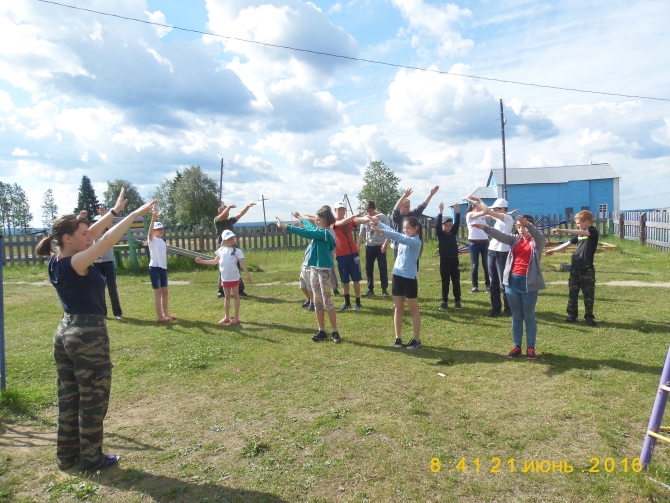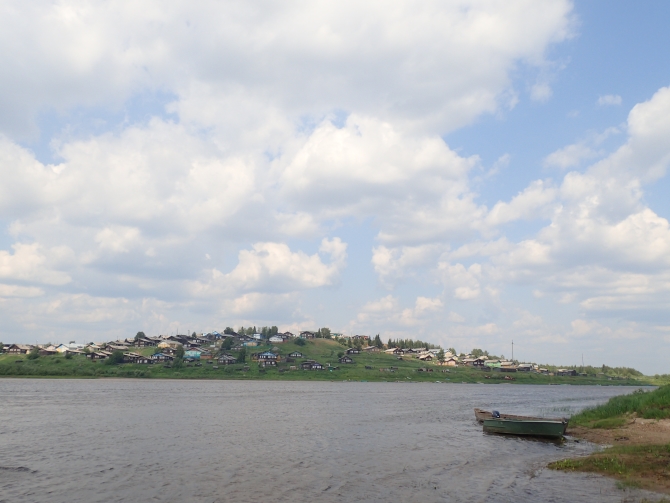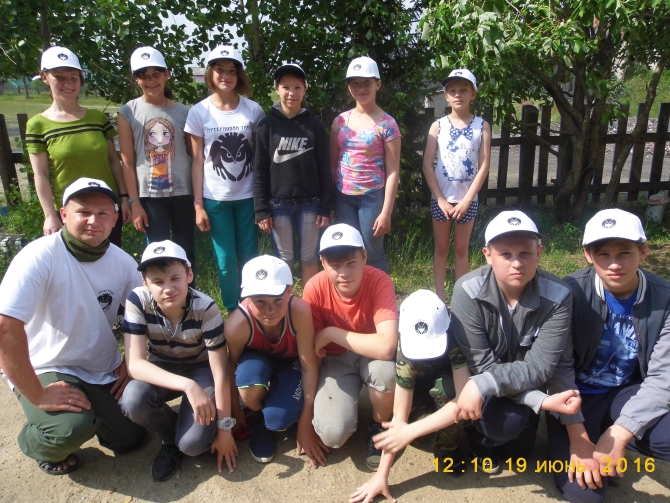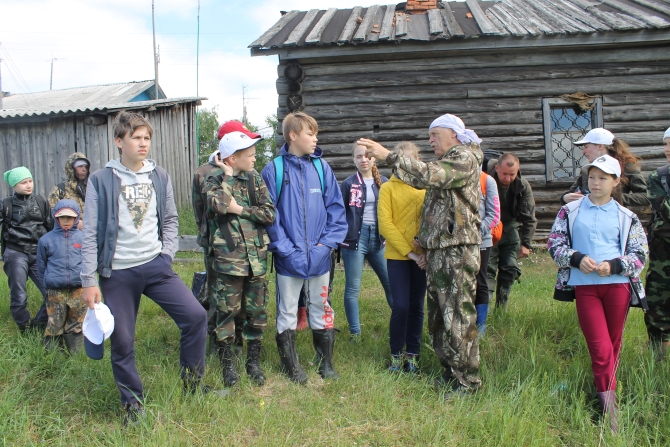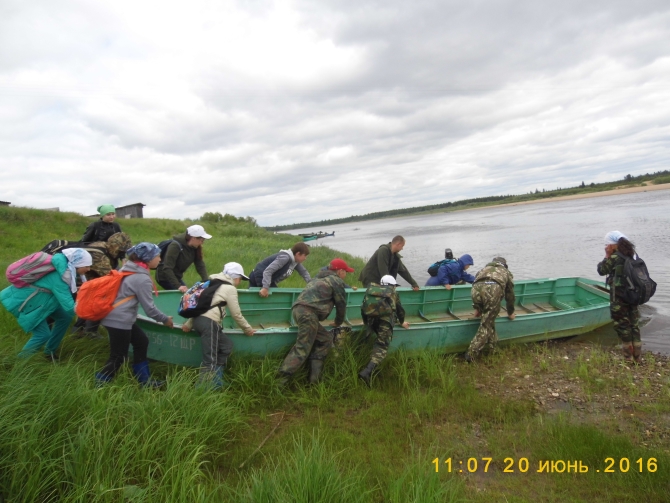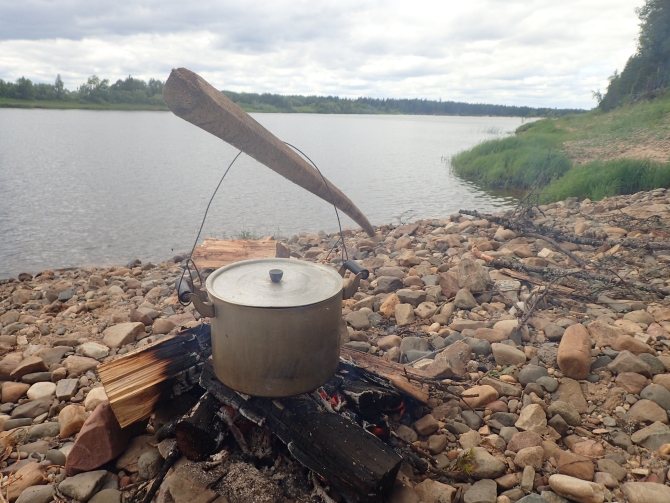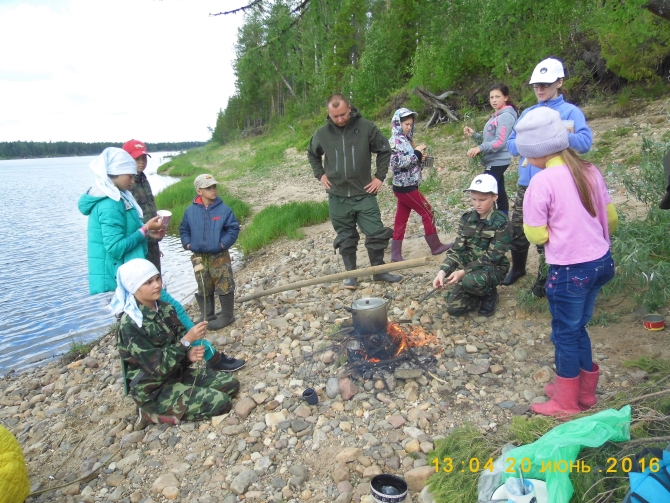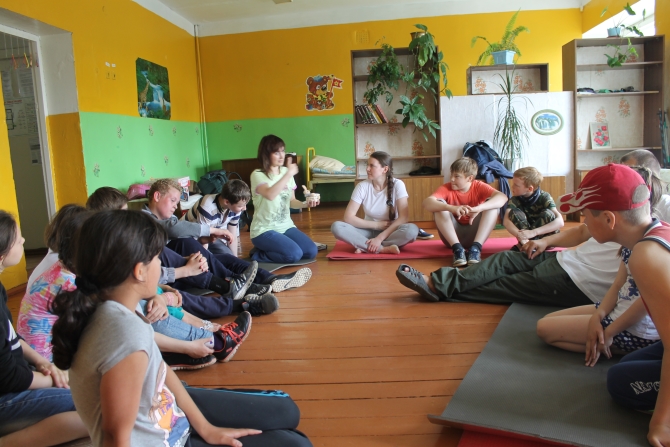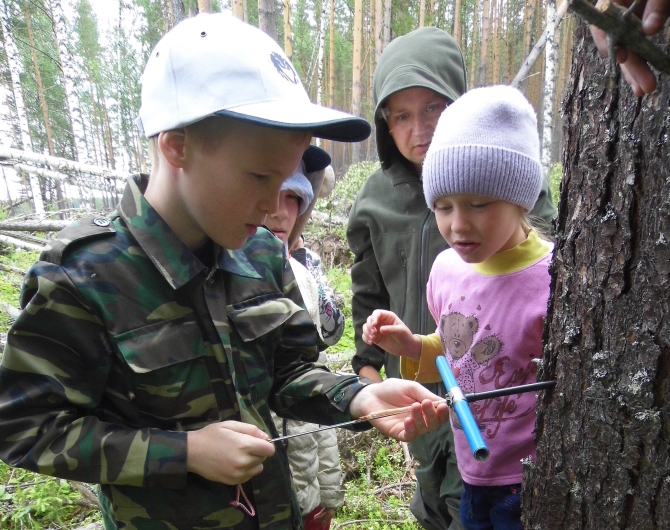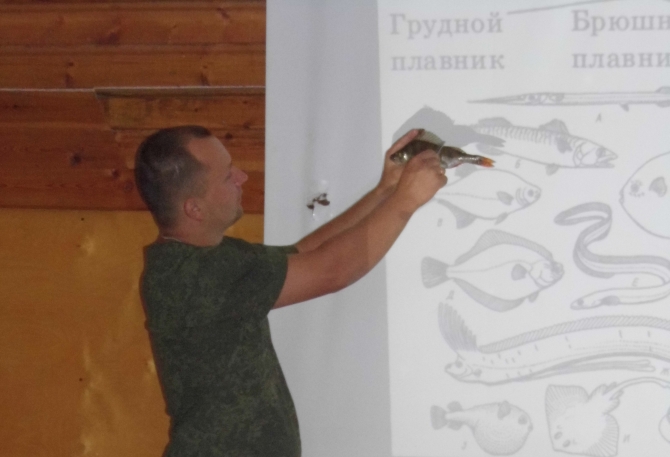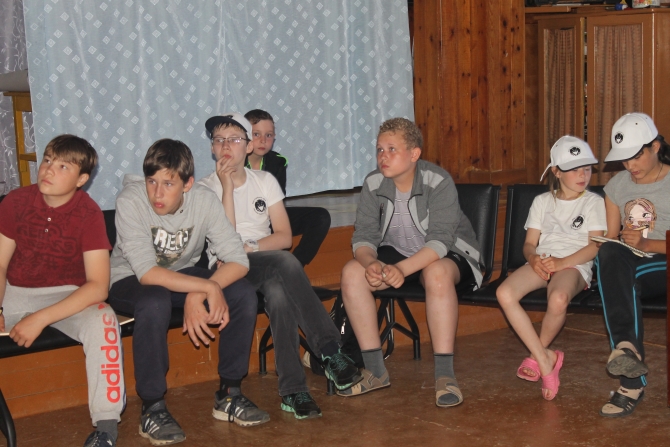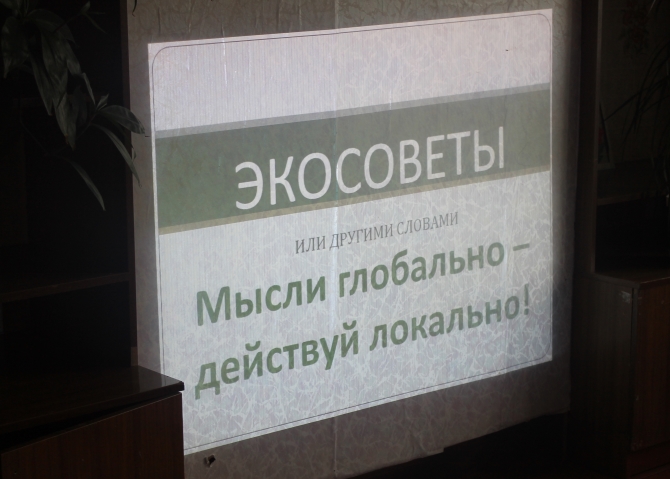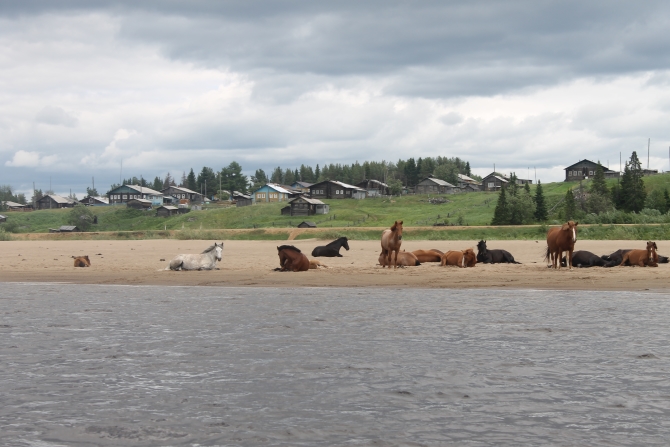Upbringing is Needed for Kids First of All, Not for Adults!
The Summer Ichthyological School was arranged from June 18 to 26 in the village of Bolshaya Pyssa, Udora district, under the Model River Mezen project jointly with the Usogorsk Children’s Activity Center with the involvement of the Republic Center of Specially Protected Natural Areas. The School welcomed kids from various residential areas, such as Usogorsk, Syktyvkar, Bolshaya Pyssa and Yb. 17 people in total, including four adults and 13 schoolchildren, participated in the School’s activities.
As Nikolay Shilov, initiator and head of the School, believes, its main objective is at least to develop responsibility of river resource use and as a maximum to provide career guidance, as the republic needs professional ichthyologists who know how to work with fish. “These are not adults who need to be brought up, but children first of all”, Nikolay states, “the environmental situation and the condition of our natural resources will depend right on them in the future.”
The first day was rainy with a thunderstorm in Bolshaya Pyssa, which was not surprising at all for the facilitators, as the weather forecast promised rain and clouds for the whole week. What was really unexpected is a two-day blackout caused by a failure as a result of the thunderstorm. The incident forced the facilitators to review the agenda and arrange two team-building days.
On the first day the guys got down to heating the banya (Russian sauna) provided by the village administration all together. They thoroughly washed the banya, brought firewood and water, lit the stove, having shared the duties in advance. Afterwards, the banya ceremony at the end of the day became a tradition.
Even though the weather forecast was far from being promising, the rest of the days were sunny and warm, so it made it possible for the facilitators, including Albert Loginov, a local regional studies expert, to arrange a village tour and a hiking tour. The kids learnt about the history of the district and the role of aquatic bioresources and forest in the life of the local community, they got to know about the past and present of the village, local flora and fauna as available in the Pyssa landscape reserve.
Other days of the practical school’s participants were structured just like they had been arranged during a similar ichthyological workshop held in the village of Krivushevo by the Irva, the Mezen tributary, a year before.
Before the afternoon break trainers shared their experience with the children. Nikolay Shilov spoke about fish anatomy, waterbody ecology, anthropogenic effect on fish, and ways of maintaining fish population; he also conducted a practical lesson on fish species identification…. Later, the children noted that fish anatomy studies by the example of the fish just caught was the most exciting moment. Elena Frolova, leading expert of the environmental education department, the Republic Center of Specially Protected Natural Areas, shared her knowledge about the Komi Republic network of specially protected natural areas, in particular about the SPNA of Udora district, with the kids, she informed them on the program of the Zapovednaya Shkola extensive education school and conducted some arts & crafts classes. Anna Shuktomova from Silver Taiga talked to the children about basic principles of environmentally friendly way of life and waste sorting. Each participant defined which of the principles can be immediately applied by them in real life. In addition, the kids were shown environmental movies, took part in the Environmental Footprint game, where they had to estimate their personal impact on the environment of the Earth. The extended education teacher of the Children’s Activity Center Dina Chuprova made the participants aware of recreational use of river resources with the case study based on the Udora Necklace tour; she also conducted a craft workshop on how to make souvenirs from birchbark.
After the break, some of the kids prepared the Evening News by interviewing long-term residents of Bolshaya Pyssa helped by Nadezhda Morozova, head of the tourism and regional studies department, Children’s Activity Center. Later, at regular evening gatherings the young journalists demonstrated the results of their investigation and the knowledge obtained from local residents to other children. All others were busy with practical tasks or participated in the events facilitated by the local library.
The participants had a get-together every evening after dinner, they shared their impressions of the day, thanked each other for the care they demonstrated when performing their duty at the canteen, or cleaning, or heating the banya, or organizing evening fun activities.
It is worth mentioning that the locals were very hospitable and helpful. For instance, one day the facilitators managed to get the local department of the Ministry of Emergency Situations to tell the participants in detail about their duties and show the equipment they use at work. The kids tried on the uniform, sat on the driver seat of the fire engine and even attempted to extinguish simulated fire by means of the fire hose. The children also learnt about the activity of the local forestry – the forest officer also showed them the equipment used at work. Aleksey, one of the participants, said after the tour he would like to work at the forestry.
The team spirit generated throughout the days at the summer school was clearly observable, as was demonstrated by the Photo Hunting game. The children divided into three teams with each one getting a list of 50 object to be shot, including hawkweed, a goat, New Year decoration, a boat, a bell, a live mosquito, boots, sneakers and slippers in the same picture, a group photo with a local resident, a tower, a bicycle with the activity center at the background, pyrites, a ferry, FSC mascot, SPNA, an example of environmentally friendly style of life, trenches, a dog with the department of the Ministry of Emergency Situations at the background, a wooden car, and many others. The young photographers had an hour and a half to shoot as many objects from the list as possible, and at the evening get-together they all laughed at funny pictures shot during the game.
The final task for the participants was the Expert activity game with the topic “I and sustainable use of river resources”. To fulfil the creative task, the guys had to suggest their own examples of sustainable river resource management and stage the topic. All teachers agreed that the students coped well with the task, however, there was something to be added by the adults to results of each team, which proves the issue is acute and requires more detailed consideration and drilling.
Now, the Summer Ichthyological School facilitators are discussing plans for the next year. In particular, they are looking for new types of class. This year experience showed that interactive communication requires a higher focus and more time, as kids have a lot of questions during their presentations which need to be encouraged and cannot be ignored. Many children do not think about environmentally friendly behavior at all yet, they have no idea about exhaustibility of natural resources. Therefore, we need to work hard to fill the gaps while they are still young.
Photos by Anna Shuktomova
Elena Frolova
Nadezhda Morozova

